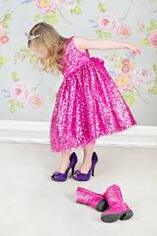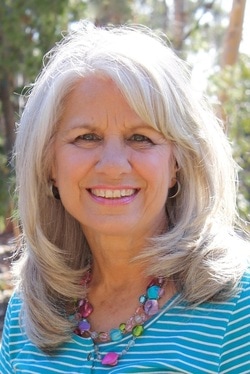resources for your journey with jesus |
 Dress-up games are children’s fanciful privilege, fostering dreams and expanding imaginations into visions of glorious futures. Dressing up was one of my favorite childhood past-times, which may explain why I remember the story I share here. It was a normal summer day and I’d put on some of my mom’s old petticoats, a broad-brimmed hat, stiletto heels and a slew of jewelry. I came strutting into a room of adults and pirouetted as they told me how beautiful I looked. But then someone said these words that I’ve never forgot: “You look like Juneteenth.” As laughter ensued, I sensed a hidden unkindness in the words. But then someone said these words that I’ve never forgot: “You look like Juneteenth.” As laughter ensued, I sensed a hidden unkindness in the words. As I read the history of Juneteenth this morning, I discovered why. More on that in a minute, but first, in case you don’t have a clear grasp of this vital American celebration, here is a brief summary: While President Lincoln issued the Emancipation Proclamation in 1863, the Civil War didn’t end until April, 1865 and the North struggled to enforce it in the rebel confederate states. On June 19, 1865, Union soldiers arrived in Texas, one of the most resistant states, where General Gordon Granger read a proclamation that included these words: "all slaves are free." When African American slaves heard this, they were in utter shock and disbelief, and for them, the true celebration of emancipation began. Through the years, honoring that day became tradition as people gathered to eat, worship, play games and comemmorate their freedom day. While true equal rights would elude African Americans in the centuries to come, Juneteenth has continued to be a time for families to celebrate and pass on their rich heritage on to future generations. Many states now officially recognize the date, including Texas, and there is strong pressure to make it a national holiday. Back to my story. Reading about Juneteenth, I came across the following and then I understood the shame I felt on that dress-up day some six decades ago: Dress was also an important element in early Juneteenth customs and is often still taken seriously, particularly by the direct descendants who can make the connection to this tradition's roots. During slavery there were laws on the books in many areas that prohibited or limited the dressing of the enslaved. During the initial days of the emancipation celebrations, there are accounts of former slaves tossing their ragged garments into the creeks and rivers and adorning themselves with clothing taken from the plantations belonging to their former 'masters'. (https://www.juneteenth.com/history.htm) New generations, not knowing the history behind hurtful words or even actions, simply repeat what they have heard, never understanding how they may play a role in perpetuating painful stereotypes and false narratives. When I read that, I understood that while the adult who described my dressed-up self as looking like Juneteenth probably did not know the history behind those words, it is clear to me now that it was a derogatory phrase, most likely handed down in generations past by angry slave owners whose lives were upended on June 19th, 1865. Here’s the thing. No one had to tell me that “looking like Juneteenth” was shameful—I felt it and have not forgotten it for over six decades. I share this now because I am learning how deeply ingrained my own cultural influences can be, and how easily they are passed along. New generations, not knowing the history behind hurtful words or even actions, simply repeat what they have heard, never understanding how they may play a role in perpetuating painful stereotypes and false narratives. The events of the past weeks have felt to me like watching a slow-motion film as a scab is ripped from a deep and dreadful national wound, its infection spilling into the streets and shaking up my ordered white privilege world. The events of the past weeks have felt to me like watching a slow-motion film as a scab is ripped from a deep and dreadful national wound, its infection spilling into the streets and shaking up my ordered white privilege world. I am seeing daily how much I must learn and am unequivocally committed to the process. I am studying biblical justice and letting God’s heart soak into mine. I hope to offer a series of devotionals on it here in the coming weeks. I am listening to people of color and other spiritual leaders who are speaking into the issue of racism and social justice. I have included some links below. But today I am going to celebrate Juneteenth. I am going to rejoice with my African American brothers and sisters on this, their independence day, and thank God for that moment when newly freed slaves shed their rags and donned the beautiful clothes they’d once been denied. I might even get dressed up myself. links for learning |
Tricia McCary RhodesAuthor of 7 books and pastor of Global Leadership Development at All Peoples Church in San Diego, Tricia specializes in helping others experience God’s presence through practicing soul-care. Archives
February 2024
|

 RSS Feed
RSS Feed